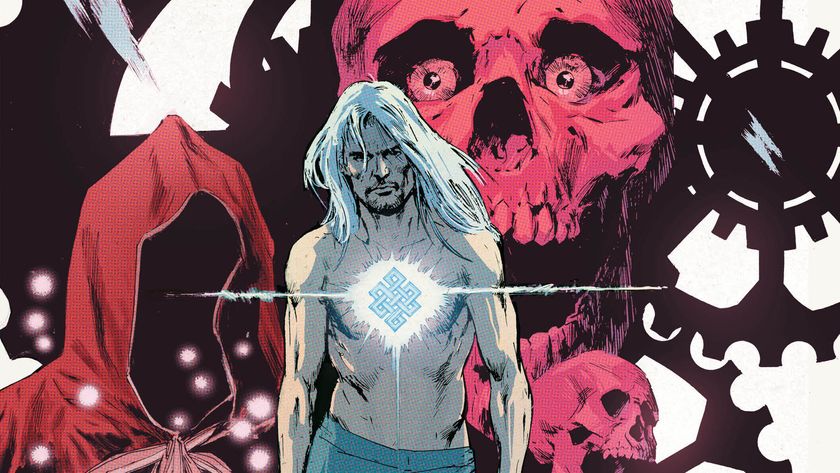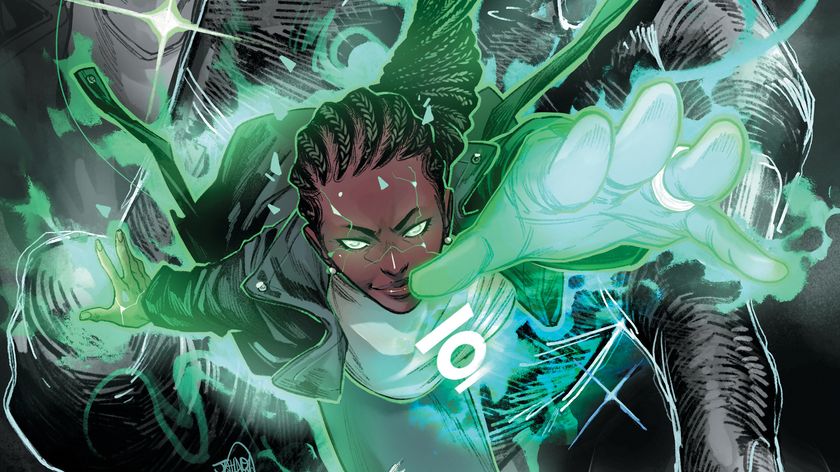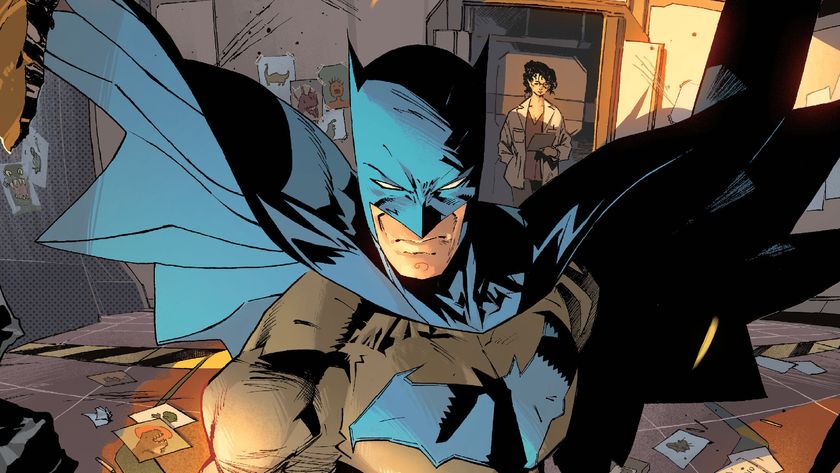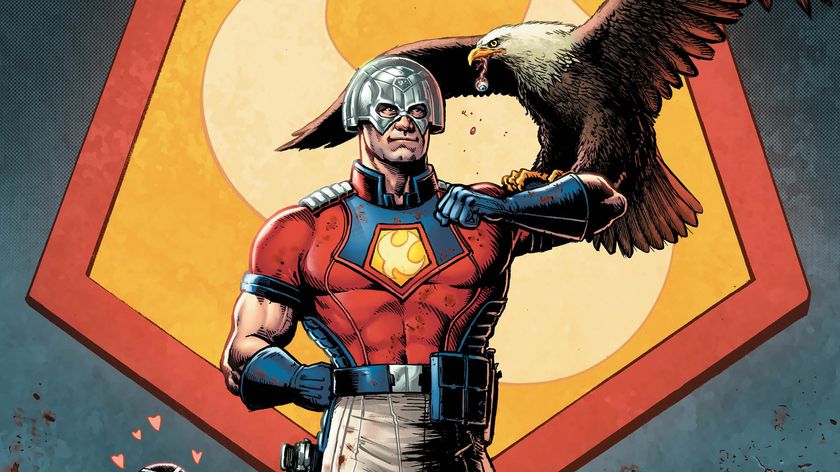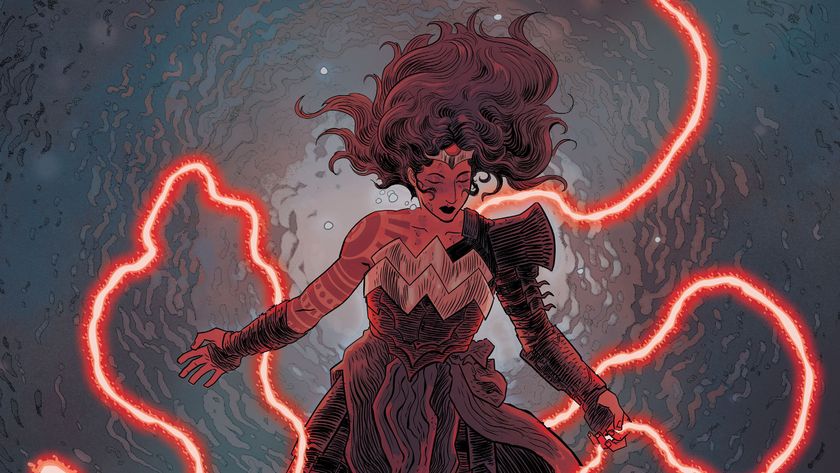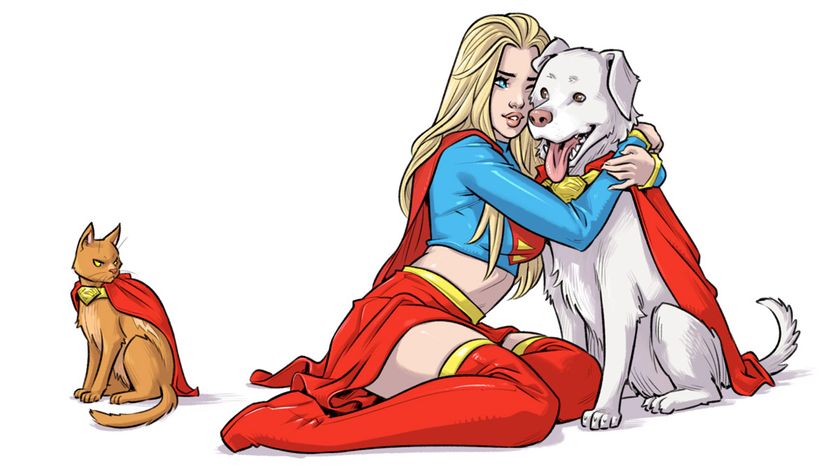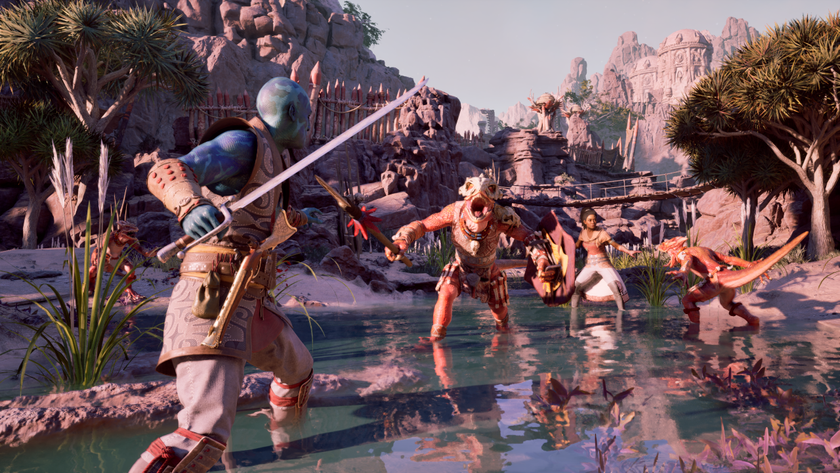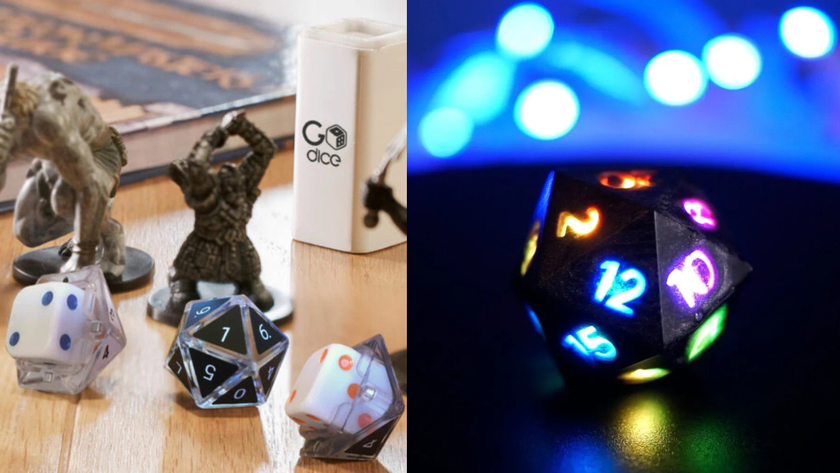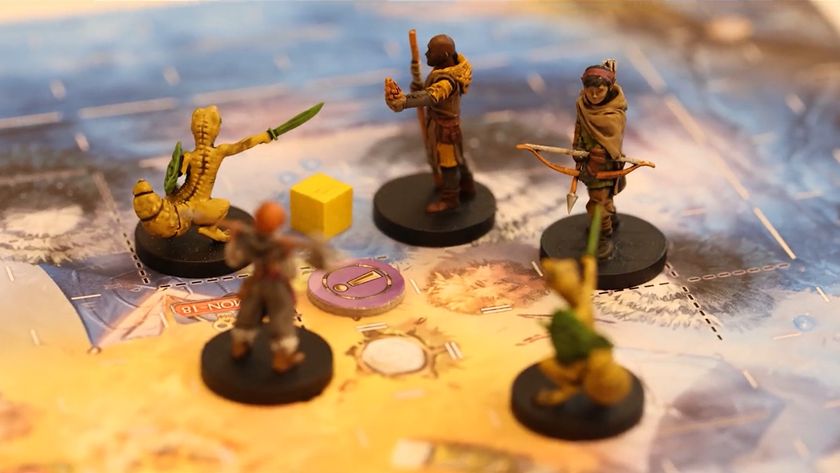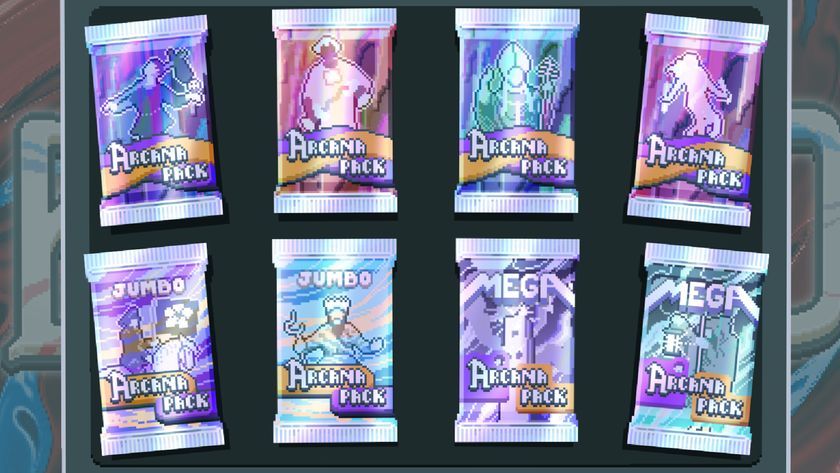If Death Metal is continuity then Infinite Frontier is a reboot and other DC observations
DC marketing and storytelling collide in Death Metal and Infinite Frontier. Maybe it's time for a new word for "continuity"?
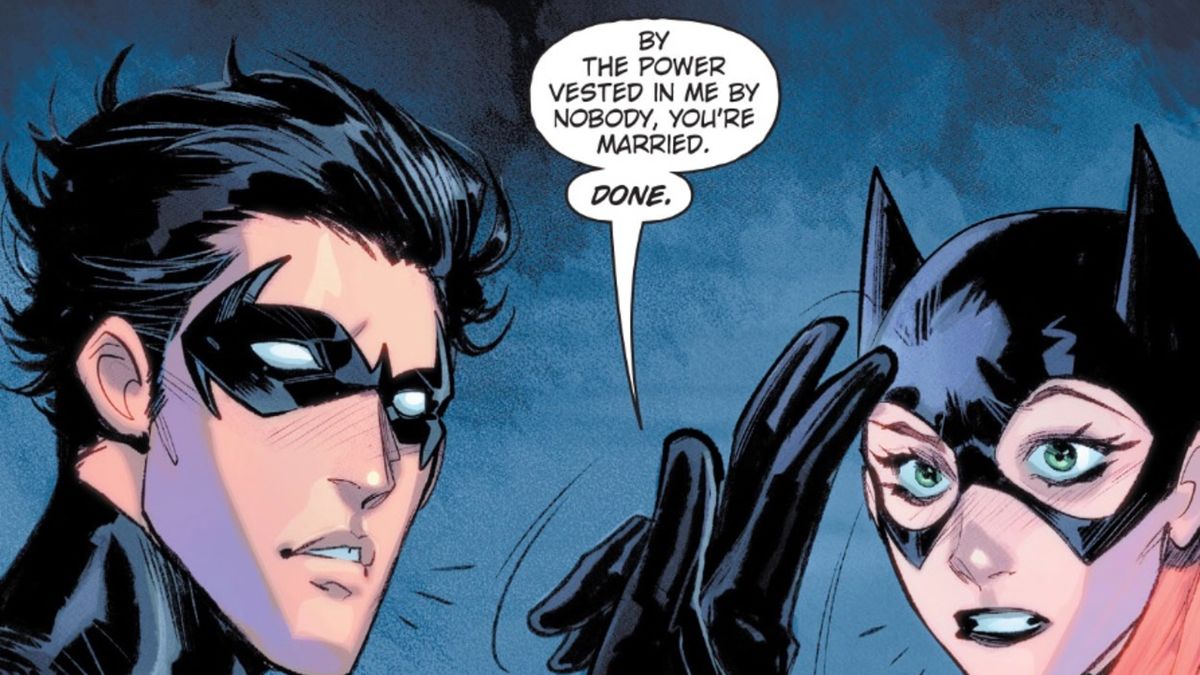
Tuesday, January 5 is a big day for DC. Along with the launch of the two-month event Future State, it marks the release of Dark Nights: Death Metal #7. That finale of the Scott Snyder-Greg Capullo epic event by all indications will serve as the catalyst and do the expository heavy lifting for the DC Universe's new status quo that will then get its big start in March's Infinite Frontier launch.
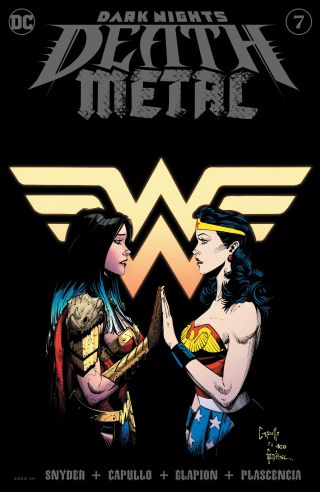
But here is a question that didn't occur to us until very recently - is Dark Nights: Death Metal "continuity?"
Our answer until recently was of course it is. Sure, it's in that sort-of comic book 'pocket' state of continuity in which its events occur at a different time than say the recent Batman crossover 'The Joker War,' which is more grounded in for lack of a better term 'current continuity.'
But despite the massive changes to characters and the state of the DCU that occurred unseen and before the start of Death Metal, there was no doubt that unlike the Elseworlds or alternative futures of Batman: The Dark Knights Returns or Kingdom Come - Death Metal is full-on continuity.
Heck, Snyder was prescient enough to make it plain in the first line of exposition on page three of Death Metal #1:
"Hell, Formerly Themyscira. The DCU. [Yes, the real DCU]," it reads.
So why are we talking about Death Metal's role in continuity?
It was this response by writer Tom Taylor in our recent interview about taking over the Nightwing monthly series.
We asked Taylor if the events of the story in the Dark Nights: Death Metal: Last Stories of the DC Universe special in which Dick Grayson and Barbara Gordon symbolically marry on what they think is the last night before their deaths would inform Dick and Bab's relationship in Nightwing when he takes over in March.
Comic deals, prizes and latest news
Get the best comic news, insights, opinions, analysis and more!
Taylor's response:
"An alternate universe tale set in the future doesn't really inform our story, but everything Nightwing and Batgirl have been through over the years does."
Now as the writer of both DC's Injustice: Gods Among Us and DCeased series, Taylor is something of an expert on DC alternate universes set in the future. And while Death Metal certainly takes place in the near-indeterminate future as it relates to the core monthly titles, DC has not done or said anything to indicate it doesn't take place in THE future of the core monthly titles.
For the record, DC declined to have us talk with Taylor or Snyder about Death Metal, Infinite Frontier, and continuity, and as is its default setting it didn't respond to our question of "Is Death Metal continuity?" directly.
And to be fair, we might be making much ado about nothing. After all, DC "continuity" is very much like an impressionistic work of art. When viewed from afar it paints a beautiful picture. When looked at too closely, it becomes something of a big 'ole mess (and props to Amy Heckerling's Clueless for that analogy.)
DC is self-aware of this too. After decades of regular attempts to meta-rewrite their continuity/timeline to try to arrive at some in-story internal logic, it seems what Death Metal might do next week is narratively explain how that sort of exercise is now unnecessary.
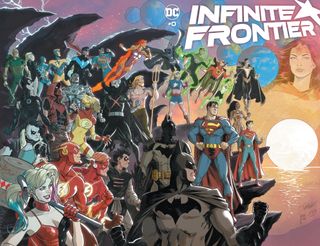
"Dark Nights: Death Metal has created an infinite multiverse," reads DC's description of the upcoming Infinite Frontier era. "DC's heroes saved all of reality from the brink of destruction and shook loose the very fabric of space and time. The entire history of the DC Universe has been restored. Every epic battle that ever happened is part of one timeline where everything matters!"
So in other words, DC seems to be saying it all happened, so it's all continuity.
In other, other words, the answer to questions like who came first, Superman or the Justice Society, was the Huntress Helena Wayne or Helena Bertinelli, and did Jean Loring really take a flamethrower to Sue Dibny or is Sue still alive are now all "YES."
And this would make the distinction between Death Metal being the future or an alternate universe future like Injustice or DCeased mostly irrelevant since everything is now "one timeline."
But as eloquently as Snyder may stitch this together next week, it's not hard to imagine where the seams will eventually begin to unravel, as DC history has demonstrated is somewhat inevitable.
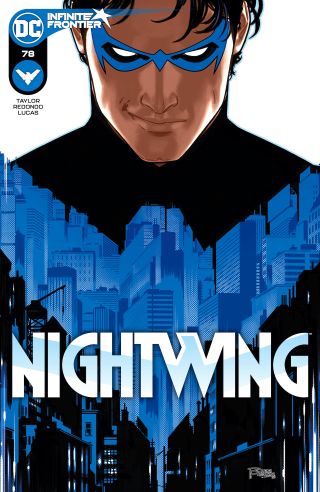
Storytelling does require some semblance of internal logic to have any stakes. For example, if in Tom Taylor's Nightwing #78 the events depicted in The Last Stories of the DCU haven't happened yet (and never will happen, which we'll get to in a moment), then does "everything Nightwing and Batgirl have been through over the years" include stories pre-'Rebirth'?
Pre-'New 52'?
Pre-'Crisis'?
Or D.) All of the above?
The same lingering DC questions remain and March is still two months away.
The best application of these apparent new rules seems to be with a wink and a nod and a grain (if not pillar) of salt. DC appears to be signaling - but not quite saying out loud - not to think too hard about it all.
Maybe the new status quo will be each writer and/or editor making their own decisions when it comes to the version of the characters and their history they are culling from.
And that might be good and fine but the publisher is already playing a little fast and loose with its own new mantra.
In the same March solicitations in which it's launching Infinite Frontier and its "everything matters" era, it's also soliciting the new digital-first series Sensational Wonder Woman.
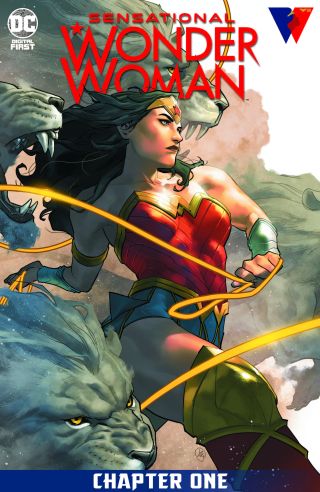
"This reader-friendly, high action series is poised to deliver dynamic, standalone stories that are free of continuity, giving hardcore fans even more Wonder Woman action to love and new fans a fun starting point to enjoy stories and provide a gateway to discovering more about Princess Diana," reads DC's marketing copy.
The continuity gods giveth, and they taketh away.
Now again, to be fair, DC doesn't say it's not continuity, but that it's free of continuity - a subtle but legitimate distinction.
However, in an industry in which distinctions between alternate universes and canon are important to its "hardcore" readers (or at least have been) and has been a preoccupation of their publisher itself since the '80s, this seems somewhat like trying to have your continuity cake and eat it too.
DC is alternately saying Sensational Wonder Woman is both in continuity and free of continuity, and although we get the convenient meta conceit and the two different readerships it's trying to reach, it's also a complicated landing to try to stick.
All these marketing gymnastics also reminded us of DC publisher Jim Lee's signal to its readers last fall, which we revisited last week and again, was very purposeful on DC's part.
"There won't be a project called '5G', or a big reboot, or whatever," Lee said of DC's big 2021 plans, which we all now know as Infinite Frontier.
Bearing in mind Lee said "...or a big reboot," he seemed at the time to be trying to preemptively distance perception of what was no longer their original 2021 plans - the rumored '5G' - and was now Infinite Frontier from 'The New 52,' the controversial 2011 line-wide reboot that seems to be garnering a less-and-less desirable connotation for the publisher over recent years.
And to acknowledge our own complicity, Newsarama has repeatedly referred to Future State and Infinite Frontier in that way - that it would be a refresh and a jumping-on-point for DC readers but not a reboot like the 'New 52' was.
But under further examination, those distinctions seem less clear and frankly less relevant.
After all, like all DC 'Crises' and subsequent reboots and continuity tweaks, the 'New 52' did have an in-story explanation. And DC didn't nearly throw all the babies out with the bathwater even then.
While in September 2011 (for example) Superman's marriage was dissolved and his career retroactively altered overnight, the Batman titles returned essentially in-tact continuity-wise. 'The New 52' was a mixed bag of what was kept and what was reset.
Upon further consideration, the key to Lee's September message seems to be less than Infinite Frontier will not be a reboot, but instead that it won't be a "big" reboot, meaning the degree to which things will be reset.
But make no mistake, things will be reset.
Here's what appears to be happening next week and then into March. Let's see if we square this circle.
The monthly DC line including Nightwing, Action Comics, Batman, etc. is mostly picking up in March where it left off in December before Death Metal would have happened timeline-wise, but with a new retroactive status quo under the conceit of a "reborn" and "infinite multiverse" created as a result of the future but in-continuity events of Death Metal, which also prevents its own events from occurring on an endless time-loop.
So Death Metal may be retroactively affecting the past and present and preventing its own in-continuity future as it would someday occur, thereby creating a new continuity.
Whew!
And assuming that's right or at least close that seems like the very definition of a line-wide reboot, with the only real remaining question being the subjective degree or size of the reboot.
If by this time you're still with us but reaching for the Excedrin, then perhaps we've succeeded in distilling four decades of DC continuity rewrites into a 1700 word essay. And to repeat our disclaimer we're only speculating what happens in Death Metal #7.
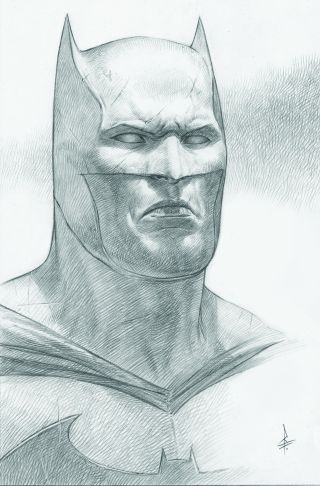
But if it all "matters" and what one writer regards as an alternate future is also core continuity, perhaps what's needed as much as an elegant new in-story combination of multiverses and hypertime theory is new terminology to distinguish between what historically happened/matters (which is now everything) and what's happened in the (again, for lack of a better term) 'bubble' of each story we're reading, which simply can't be everything.
DC's core line can't become a game of Whack-a-Mole where if you kill 2021 Batman the 1979 Batman is ready to take his place.
And I don't think DC really intends it to be that. So how it threads the needle between the DCU being a truly 'infinite' frontier and possessing an internal logic in which story events 'matter' and twentysomethings Barbara and Dick have something that resembles a decade or so of shared history rather than five and a half decades will be the thing to watch next week, in March, and the months ahead.
Death Metal is what Scott Snyder calls an anti-Crisis. Check out Newsarama’s ranking of all of DC’s Crises from best to worst.
I'm not just the Newsarama founder and editor-in-chief, I'm also a reader. And that reference is just a little bit older than the beginning of my Newsarama journey. I founded what would become the comic book news site in 1996, and except for a brief sojourn at Marvel Comics as its marketing and communications manager in 2003, I've been writing about new comic book titles, creative changes, and occasionally offering my perspective on important industry events and developments for the 25 years since. Despite many changes to Newsarama, my passion for the medium of comic books and the characters makes the last quarter-century (it's crazy to see that in writing) time spent doing what I love most.
